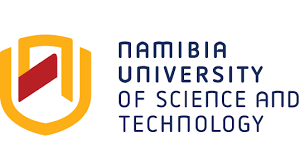Location
Known for being a trendsetter in higher education and applied research internationally, the Namibian University of Science and Technology (NUST) aims to become the leading university in Africa. The Department of Land and Property Sciences (DLPS) offers relevant degrees at undergraduate and post-graduate level including master and doctorate degrees. The Department of Land and Property Sciences (DLPS) at NUST together with the Integrated Land Management Institute (ILMI) are playing a leading role in research and outreach in the field of land governance and administration.
The purpose of NELGA (Network of Excellence for Land Governance in Africa) is to enhance the role of selected African Universities and academic institutions in support of land policy development, implementation and monitoring. NUST was selected as a NELGA node for Southern Africa, because of its proven leadership and track record in academic education, training and research on land governance. To date NUST as a regional NELGA node has granted 6 scholarships (4 masters and 2 PhD’s) on land governance via the DAAD scholarship. The node is in the processes of identifying partner institutions for full implementation of the NELGA activities. One of the key work packages is to establish a regional node for NELGA Southern Africa.
Members:
Resources
Displaying 56 - 60 of 65Potential, realised, future distribution and environmental suitability for pterocarpus angolensis DC in southern Africa.
The deciduous tree species Pterocarpus angolensis occurs in the dry woodlands of southern Africa and grows under a broad range of environmental conditions. It is threatened by overharvesting due to its valuable timber (Blood wood, Kiaat) and by land use changes. Information on the most suitable environmental conditions for the species is often old and anecdotal, while available data on its occurrence refer to range extent and not to distribution.
The future Okavango project: SP05 - Impacts of altered land use practises on the plant related ESF&S. TFO fieldwork report 2010 - 2012 for task 6 of SP05: Timber provision of Burkea Woodlands
This short field work report gives an overview of the forest inventory work done during the first two years of The Future Okavango (TFO) project, a project implemented till 2015 and funded by the
German Ministry of Education and Research. TFO aims to integrate ecosystem functions and services into an ecological and economic approach to sustainable land management at a regional scale.
Manual for working with MODIS images in SeaDAS 6.2.
This manual was written for the students of the School of Natural Resources and Tourism,
Polytechnic of Namibia during the pilot project “Assessing potential to produce final Ocean Colour maps of Namibia’s marine environment”, which is supported by the BCLME
Programme and the Polytechnic of Namibia.
Balancing the technical and social contexts of Spatial Data Infrastructure (SDI).
One special characteristic of spatial data is that they can be shared to be used for many purposes other than the one for which they were initially produced. To facilitate their efficient sharing and reuse, they need to be properly managed in the form of a Spatial Data Infrastructure (SDI). This study
Are urban land tenure regulations in Namibia the solution or the problem?
Land tenure in Namibia is regulated by a variety of Acts, some of which date back to as far as 1937, and some of which are
yet to be approved by Cabinet. This variety of Acts makes it difficult to evaluate the performance of land administration as a
whole, and the appropriateness of coercive instruments with regards to urban land tenure in particular. In this article we
evaluate how urban land tenure regularization practices are conducted in Namibia, and to compare new formal procedures,


